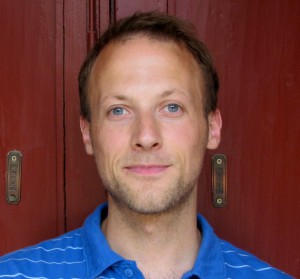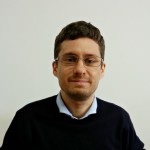Board
 |
Dr. Shawn Shieh
Shawn Shieh is the founder and director of Social Innovations Advisory, Ltd. (Hong Kong and Guangzhou), a consultancy helping NGOs and social enterprises to carry out innovative, impactful programming in China and the Asia-Pacific. He has served as a consultant for organizations such as the United Nations Development Program, International Center for Not-for-Profit Law, Council on Foundations, International Federation of Human Rights, and the Fair Labor Association. He has written and published extensively on China’s political economy, corruption and civil society, and maintains a blog on NGOs in China at www.ngochina.blogspot.com. Shawn received his Ph.D. in political science from Columbia University in 1996, and was a professor of political science at Marist College from 1995-2009. From 2007 to 2014, he lived in Beijing where he founded and directed the English-language operations for China Development Brief (CDB), China’s only bilingual, independent media platform covering China’s civil society and philanthropy sector. Shawn was most recently the Deputy Director of the Hong Kong-based labor rights organization, China Labour Bulletin (CLB), from 2014 to 2018. |
 |
Dr. Tom Bannister
Tom Bannister currently works for the United Nations Volunteers (UNV) programme in Bonn, Germany. Previously he worked for the United Nations Development Programme and UNV in Bangkok and Beijing and was the Assistant Director of the Chinese NGO China Development Brief in Beijing. Tom received a PhD in Sociology and an MA in Chinese Studies from the University of Sheffield in the UK and wrote his PhD thesis on grassroots Chinese NGO volunteerism. He has taught and lectured at the University of Sheffield and the University of Glasgow in the UK, and Tsinghua University in China. Tom is especially interested in volunteerism’s contributions to sustainable development, the role of new development actors, and promoting understanding and cooperation between China and the outside world. |
 |
Dr. Sam Geall
Sam Geall is a writer, researcher and editor with a focus on China and the environment. He is an Associate Fellow at the Chatham House Energy, Environment and Resources Department. He is also a Research Fellow at the Science Policy Research Unit (SPRU) at University of Sussex and Executive Editor of chinadialogue.net, a bilingual online journal devoted to open discussion of all environmental issues, with a special focus on China. He edited China and the Environment: The Green Revolution, published by Zed Books in 2013. Dr Geall’s research focuses on environmental governance, media and civil society in China. His writing on Chinese affairs has appeared in many publications, including The Guardian, The New Statesman, Foreign Policy and Index on Censorship. He has worked as an International Coordinator for the China Council for International Cooperation on Environment and Development (CCICED), and has consulted for the Swedish Society for Nature Conservation (SSNC), International Media Support (IMS) and others. Dr Geall has a PhD in Social Anthropology from the University of Manchester. From 2012-2013, he was Departmental Lecturer in Human Geography of China at the University of Oxford. |
 |
Gisa Dang
Gisa Dang is a capacity building specialist with focus on grassroots civil society engagement and human rights advocacy. Gisa has developed and implemented flagship experiential learning programs on organizational management and rights advocacy skills. She has supported over 200 groups to integrate fundamental skills into organizational processes through tailored coaching and hands-on change management. As a health and human rights consultant, her area of expertise include the right to participation, right to health, and right to science. Most recently, she authored submissions to OHCHR on the right to science in the context of the Sustainable Development Goals, and to the UN Human Rights Council on the right to science in the context of migration. Gisa has spoken at top global events such as the International AIDS Conferences in Vienna and Washington DC, and the International Congress on AIDS in Asia and the Pacific in Bali and Busan. Gisa holds an MA in Sinology and Political Science from the University of Cologne, Germany and is fluent in German, Chinese, and English |
 |
Dr. Patrick Schröder
Patrick Schroeder is a researcher and development practitioner focusing on Asia’s sustainability challenges, in particular China. His main areas of expertise are China’s circular economy, renewable energy and climate change. He has a PhD in Environmental Studies from the University of Wellington, New Zealand. From 2009-2013 he worked as International Advisor to the China Association for NGO Cooperation (CANGO) as Integrated Expert of the GIZ Center for International Migration and Development (CIM) programme. In this position he supported the development of the China Civil Climate Action Network (CCAN). He also worked as consultant for the EU-China Governance Programme from 2012-2013 on the topics of public participation in environmental planning and impact assessments. Up to 2016 he coordinated the research programme of the SWITCH-Asia Network Facility, currently the EU’s largest cooperation programme with Asia promoting Sustainable Consumption and Production (SCP). Currently, he is a Research Fellow at the Institute of Development Studies, UK and is leading the Institute’s research programme on circular economy, sustainable consumption and production. |
 |
Dr. Horst FabianSince his retirement Horst Fabian is working as EU – China civil society ambassador and independent China researcher. He recently wrote, together with Andreas Fulda, a plea for “Reinvigorating the EU – China Strategic Partnership” by rooting this partnership in civil society cooperation, published in Andreas Fulda (ed.): Civil Society Contributions to Policy Innovation in China in the PR China. Currently he is working on several essays about the sociopolitical dynamics of the Chinese smog crisis as catalyst of the rise of a Chinese environmental movement. From 1992 – 2012, as program coordinator East Asia of CIM / GTZ, he placed more than 150 CIM experts as local employees into Chinese partner institutions, mainly in the fields of environment and civil society. Since 2000 he built a portfolio of 30 (in total) CIM civil society experts supporting the development of strategic “infrastructure” institutions of Chinese civil society, which can be considered as one of the precursors of the EU – China civil society dialogue in its fermentation phase before its institutionalization in 2008. |



